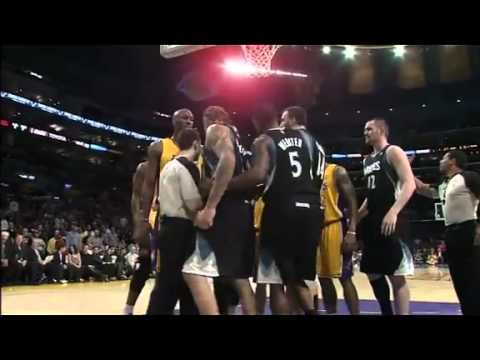For over two decades, many sports gamers (usually those who are too impatient to wait for the new Madden game) run down to the local video game store to buy a copy of the NCAA Football game made by EA Sports. Generally, it’s a good way to get your skills tuned up before the big boy game hits in late August.
Did you ever think about whether or not QB #12 was getting a cut of the money produced by EA Sports or Collegiate Licensing Company? Probably not. The CLC and EA Sports tried to backdoor the rules a little bit on likeness by not using players’ actual names. This became a moot point with the creation of forums like Operation Sports that provide gamers with custom edited rosters that display players names. If you played with QB #2 from Texas A&M, you knew who it was, and the CLC and EA Sports never had to worry.
That was until recently.
Several former athletes — including former UCLA basketball standout Ed O’Bannon — sued EA Sports and CLC citing the company’s taking advantage of likeness rights in collegiate video games dating back to 2003. Over the weekend, EA Sports and CLC settled for nearly $40 million to be paid to current (but mostly former) players who were featured in NCAA football and basketball games since ’03. (The settlement doesn’t mention any of the hapless souls that were featured in the MVP: NCAA Baseball series. No, seriously. A collegiate baseball game existed at one point.)
One of the co-counsels for the plaintiffs, Steve Berman, said he and his clients were “incredibly pleased with the results of this settlement and the opportunity to right a huge wrong enacted by the NCAA and EA against these players and their rights of publicity.”
The settlement grants up to $951 to each player for every year in the game. Some of the larger plaintiffs like O’Bannon will be getting a much bigger individual cut. This marks the first time a commercial partner of the NCAA will pay student athletes.
EA Sports didn’t produce an NCAA Football game (much to my personal disappointment) last year and hasn’t produced an NCAA Basketball game since 2009. (Although if you played NBA Live ’14 for either Xbox One or Playstation 4, you wouldn’t want EA doing another basketball game. Leave that to the professionals at 2K Sports, boys.)
This settlement doesn’t mean that EA Sports will be rushing back in to produce collegiate games. Their Madden franchise continues to bring in billions of dollars in revenue — mainly because it’s the only game in town when it comes to the NFL. FIFA Soccer is one of the most recognizable brands on earth, and their NHL series continues to win awards for best sports sim.
Electronic Arts had planned on producing new collegiate football games under a new brand entitled “College Football” due to being able to utilize CLC for rosters, universities and other likenesses. This became impossible after the SEC, Big Ten, and Pac-12 balked on supporting a new franchise in the face of incredible pressure due to the lawsuit brought by O’Bannon.
The NCAA is under a lot of pressure from O’Bannon and the newly formed College Athletes Players Association (CAPA) by former Northwestern quarterback Kain Colter. The NCAA has already had to settle one landmark case regarding collegiate athletes earning money outside of their scholarships, and if O’Bannon wins his case against the NCAA, that could further change things.
The NCAA caught a major break when it was decided that O’Bannon can’t use information from the video game case in his separate case against the NCAA. It’s a shame O’Bannon couldn’t use the little factoid about the NCAA knowing that video game players were based on CURRENT players despite them saying the opposite.
Even without that little nugget of truth (that can’t be used in O’Bannon’s case), it’s going to be hard for the NCAA to prove its case and its stance about how paying players “hurts their mission” so to speak. If O’Bannon wins his case, there is a possibility that collegiate athletes may begin seeing a cut of (at the very least) television revenues. When you consider the NCAA took in over $700 million in them, that’s a pretty big pot.
For now, collegiate sports video games are on indefinite hiatus, and there’s little hope there will be a return — especially when EA Sports is already printing money with Madden, FIFA, and NHL. When the O’Bannon vs. NCAA trial starts next Monday that could forever change the landscape of college sports — video game or otherwise.
Add The Sports Daily to your Google News Feed!
